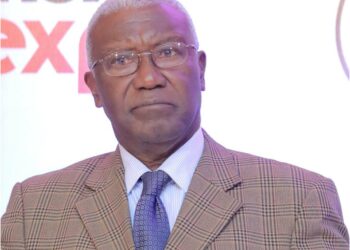In his speech to the Central Executive Committee-CEC about the ‘Economy of Uganda’ on 23rd December 2018, the National NRM Chairman conclusively narrated how we the youths are not a problem. Like he said, NRM has and i believe it will always save the youths from dying young.
The Covid-19 pandemic unsettled every aspect of our lives. The response of the Ugandan government across the country to control the spread of the virus resulted in a deceleration of activity across social and economic spheres that are typified as job losses and social unrest. The impact of lockdown restrictions endured for years and doubtlessly affected the most vulnerable in our Ugandan society, especially the youth.
The youth and future generations will sustain the bulk of the economic and social consequences of the covid19 global crisis. The Coronavirus pandemic resulted in a disruption to the education and training of young people; it exacerbated vulnerabilities of youth workers and meant an extended, more onerous transition to decent employment for young people.
Overall, the broad-ranging effects of the Covid-19 pandemic on the wellbeing of my fellow young people have been severe and drastically inhibited their access to opportunities for support, growth and development. Effects such as these have always threatened to worsen inequalities where they exist and diminish the potential of an entire generation.
Even prior to the onset of the pandemic, the social and economic integration of my fellow young people was a challenge. In Uganda here, young people account for 59,5% of the total number of unemployed persons, and the unemployment rate is high irrespective of education level.
A recent study conducted by the Metropolitan International University found that the onset of the pandemic meant that young people in skills development and training had to immediately halt their schooling due to the lockdown restrictions. Consequently, they were unable to finish learning the skills they needed to secure employment.
According to the Uganda bureau of Statistics, close to one in three young Ugandans between the ages of 15-24 years old were disengaged from the labour market in the first quarter of 2022. These findings suggest that young people face even more severe difficulties in participating in the Ugandan workforce than prior to Covid-19, which were already considerable.
In addition, the Covid-19 pandemic adversely affected the mental wellbeing of young people. Financial stress and uncertainty about the future, coupled with social isolation which also severely impacted on the emotional development and mental health of young people, inducing anxiety and depression disorders, substance misuse and risk of suicide.
The presence of mental illnesses in young people without psychological support thwarts their chances of escaping poverty. In turn, their confinement in poverty worsens their mental wellbeing. It is a seemingly endless cycle of interrelated problems that will multiply without immediate intervention.
The Ugandan government has well institutionalised youth development as a precondition for systematic advancement, yet young people remain marginalised in the form of unemployment and poverty, substandard education, family and community fragmentation as well as repeated exposure to crime and violence.
The hierarchy of those with privilege versus those without is significantly more abysmal once it is disaggregated according to gender and other identity categories. Young people and women carry the brunt of household labour and are disproportionately unable to access information and communications technology infrastructure, all of which impedes their capacity to practice active citizenry.
Young people and women remain vulnerable to intimate partner violence and unplanned pregnancies, while they also face significant barriers to accessing sexual and reproductive health all of which hinder their participation in community and policy processes.
Despite such grim circumstances, we bear witness to fellow young Ugandans who are determined to pull together and use their resolve, creativity and energy to build a safer, fairer and better future. To date, there are multiple youth-led projects and initiatives in Uganda that engage the country’s most urgent challenges, including climate change and environmental justice, gender justice and community safety.
The Ugandan youth have a history of being locomotives for change and school grounds often featured as arenas for political and social action. However, youth initiatives are often unsupported and undermined by political and community leaders. Young people continue to feel unseen and unheard.
Youth are involved in communities in numerous ways that frequently go unrecognised. A lack of meaningful support for youth-led movements hampers the positive effects these can have to transform communities and the broader East Africa.
The positioning of young people as “ticking time bombs”, “bad citizens” or as “needing to be grateful to their elders” is a condescending rhetoric that fails to recognise youth as legitimate stakeholders and decision-makers who should be involved in policy processes.
Young people are not a problem to be solved, but have innate value and potential that needs to be unlocked and nurtured. The world has changed and youth participation takes many forms, they are far from the apathetic and uninvolved group they are portrayed to be.
I’ve come up with the following recommendations which may be useful in nurturing youth development and strengthening youth structures in Uganda :
1. Investing resources and supporting of youth-led initiatives, including sporting events and cultural activities.
2. Mentoring young persons. While skills impartation is crucial, socio-emotional competencies are equally critical.
3. Ensuring access to facilities that are necessary for youth skills development, recreation, and identity-building, including the removal of hiring fees for community centres, a reduction of data costs and the creation of youth cafes as safe spaces.
5. Building and supporting citizenship competencies that are not geared at generating patriotic citizens, but rather youth citizens who are well-informed about various government works and projects, who are knowledgeable about the Ugandan electoral system and who know the ways to navigate socio-political systems and bureaucracies.
It is important that we apply a youth and intergenerational lens in crisis response and recovery measures across society. There is a great need to reassess existing youth strategies in collaboration with youth stakeholders and to co-ordinate and translate political commitment and policy into action.
Overall, we must avoid exacerbating intergenerational inequalities and the endless loop of trauma through meaningful youth involvement. If we can achieve this, we may be able to build a real sense of a well structured youth body and power of the youth while providing them with actual prospects for upward mobility and self-actualisation.
Lukanga Samuel
lukangasamuel55@gmail.com
+256 785717379
The writer is a social development enthusiast, an Ambassador of Humanity and judicious youth leader from Nakaseke District.
Do you have a story in your community or an opinion to share with us: Email us at editorial@watchdoguganda.com













